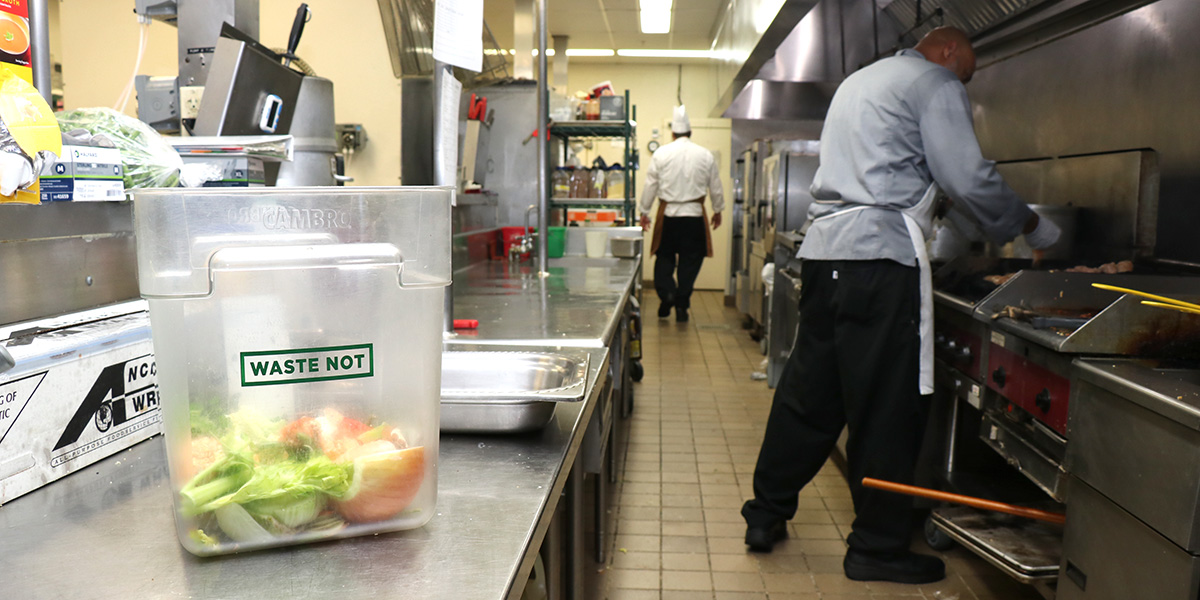
Fighting food waste
Waste not, want not.
It’s not just a proverb drilled into the heads of young people for generations. It’s a guiding principle for the chefs who prepare thousands of meals each day for the patients, visitors and staff of Spartanburg Regional’s hospital campuses.
Here are a few ways our hospital campuses fight food waste.
Spartanburg Medical Center – Mary Black Campus
It’s hard to ignore waste when you collect everything that you would normally throw away. That’s why the food prep stations at SMC – Mary Black Campus have “Waste Not” buckets. Instead of a trash can, the chefs toss food scraps and waste into these 18-gallon containers.
Everything from onion butts to excess chicken salad go into the bucket, according to Mark Starr, executive chef at SMC – Mary Black Campus and regional chef for Morrison Healthcare, the provider for several Spartanburg Regional hospitals.
“We translate it into how many quarts of waste we’ve had for the day and week,” Starr said. “I would say on average we probably hit about 16 to 18 quarts a day.”
For example, the buckets showed the chef that too much cucumber was being cut off the top and bottom, and that tomatoes should be cored so none is wasted in slicing.
That equals less than 5 percent of all the food made on-campus, but Starr said they work to make it even less.
“I have a really great sous chef who turns a lot of our scraps into soups,” Starr said.
Leftovers are turned into other dishes. Cookies coming off the line get crumbled into parfaits.
Spartanburg Medical Center – Church Street Campus
For Executive Chef Artina Lindsey, keeping food waste to a minimum is all about knowing your audience.
“My role is to minimize waste on the front end so that we aren’t wasting on the back end,” Lindsey said. “We literally have that down to a science.”
Wednesdays draw a large crowd of diners; holidays do not.
“We use last year’s projections and compare numbers from the last couple of weeks,” Lindsey said.
It’s also about knowing what people like. New dishes get two chances to make an impression; if people don’t order it, the dish never gets made again.
Leftovers are packaged and given to a local men’s shelter, so that nothing is wasted.
The Church Street Campus is also managed by Morrison Healthcare.
Pelham Medical Center
Food and nutrition manager Sam Kleckley relishes the opportunity to serve made-to-order meals to both patient rooms and the café at Pelham Medical Center.
“We have very little waste,” Kleckley said.
They also use a technique called batch cooking, which allows them to cook what they need, when they need it.
“It’s a little labor intensive, but it maintains freshness and cuts down on waste,” Kleckley said.
The few leftovers that are generated are put to other uses if not eaten during service. Chicken is chopped up to put in soup, for example. When all else fails, Pelham Medical Center composts what’s left.
The process will remain the same when the Gibbs Cancer Center expansion opens at Pelham in spring 2020, Kleckley said.
The Pelham café is owned and operated by Spartanburg Regional.










